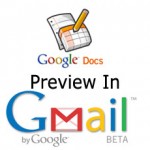 Frankfurt, Germany — Global search and advertising giant Google Inc. on Thursday, disclosed its intention at the Frankfurt Book Fair that in the first half of next year it intends to launch an online bookstore named “Google Editions” that will offer books in digital format that can be read on laptops, cell phones and other mobile devices with a Web browser, threatening to upset a burgeoning market for dedicated e-readers dominated by Amazon’s Kindle.
Frankfurt, Germany — Global search and advertising giant Google Inc. on Thursday, disclosed its intention at the Frankfurt Book Fair that in the first half of next year it intends to launch an online bookstore named “Google Editions” that will offer books in digital format that can be read on laptops, cell phones and other mobile devices with a Web browser, threatening to upset a burgeoning market for dedicated e-readers dominated by Amazon’s Kindle.
The Internet giant said that it will initially offer about half a million e-books in partnership with publishers with whom it already cooperates, where they have digital rights. Readers will be able to buy e-books either from Google directly or from other online stores such as Amazon.com or Barnesandnoble.com. Google will host the e-books and make them searchable. The e-books can be read on a range of gadgets, including e-book readers, laptops and cell phones. The store is slated to open next year.
Google spokeswoman Jennie Johnson said many of the details of the project, including which online retailers would participate and whether the digital books would be viewable on e-readers like the Amazon Kindle, have yet to be determined.
Google also ruled out making the device itself.
“We are not focused on a dedicated e-reader or device of any kind,” Tom Turvey, Google’s director of strategic partnerships, told journalists at the Frankfurt Book Fair.
In September, in accordance to the Congressional hearings into its Google Books project, the search behemoth had revealed a reseller program that would give competitors a share of money from such a service.
Google, which declined a request for comment, made the announcement this morning at the Frankfurt Book Fair in Germany.
“Google is taking the e-book arms race to another level with their highly anticipated entry into the market,” said Dan Olds, an analyst with The Gabriel Consulting Group. “The market leader, Amazon, built its position with a closed device, Kindle, which is limited to reading and buying e-Books. It will be interesting to see how well it stacks up against Google’s strategy of delivering ebook capabilities via the Web to any device that can connect to the Internet. This gives Google a vastly larger addressable market than what Amazon has built up with Kindle so far.”
Forrester media analyst Sarah Rotman Epps said Google would not necessarily steal market share from Amazon, although it would strengthen the position of others who support open standards usable across a range of devices, such as Sony’s.
“Certainly it presents collective competition to Amazon, but for many consumers the word ‘e-reader’ is synonymous with the Kindle,” she said.
That, according to Olds, indicates that Google’s e-book business could develop very quickly based-on how well the company can execute the book-buying process.
“I can see where retailers would be attracted to Google’s platform — at least those retailers who believe that e-books are eventually going to have a significant share of the market,” said Olds. “But Google will also have to convince publishers to go along, as well. You can only sell so many copies of public domain books before you run out of people who are tired of reading The Pilgrim’s Progress.”
Google proposes to partake the sales with both publishers and the online bookstores. For books sold directly from its Web site, the search giant said at the book fair that it would give publishers 63 percent of the sales and keep 37 percent itself. For books sold through Amazon or other retailers, the publisher would get 45 percent, while the retailer would get almost 55 percent with a small share for Google.
The company said that consumers would be able to read the books on any connected device, including PCs, Netbooks, and smartphones. Apple iPhone users could access the e-books through their Gmail accounts.
Technology research firm Forrester expects about 3 million e-readers to be sold in the United States this year, from a previous base of about 1 million, helped by lower prices, more content and better distribution.
Readers will be able to access e-books they have bought through Google on any device including PCs, laptops, netbooks and smartphones like Apple’s iPhone through their gmail account, Google said.


